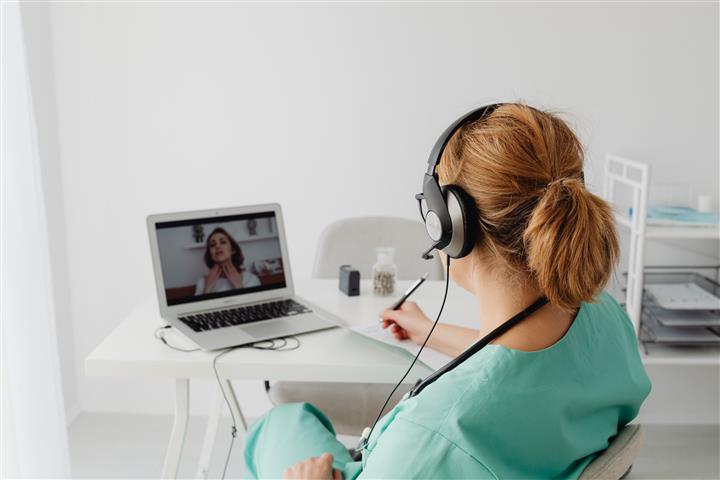 Healthcare Must Set Out on Digital Patient Journey
Healthcare Must Set Out on Digital Patient Journey(Yicai Global) Nov. 25 -- Healthcare is outdated and still operates largely on pen, paper, and fax. The sector must learn from connectivity in other industries such as autos.
Digital, wearable, and AI-driven technologies empower patients to co-create their own solutions connected with their doctors, tailored to individual needs, The Yuan, an open forum dedicated to making AI ‘All-Inclusive,’ reported on November 15.
Mobile health -- ‘mHealth’ -- connects data with patients and providers, 24/7, instantly, at home and elsewhere. The patient-cum-consumer becomes a self-empowered health custodian, from prevention to treatment.
“Remote online monitoring has the potential to be a patient-centered, safe, and effective approach to support patients during cancer treatment,” lead investigator Dr Galina Velikova concluded in a by the UK’s University of Leeds of an AI-powered mobile device that helps cancer patients undergoing chemotherapy self-manage early side effects, per The Yuan report.
Wearables tracking the vital signs of heart rate, oxygenation, and temperature will further enhance this tool.
Digital health represents an investment opportunity of -plus, including diagnostics, preventive medicine, care delivery and health systems. mHealth comprises sensor technology, AI algorithms and wearables. Cambrige, Massachusetts-based raised EUR4.7 million (USD5.5 million) last year with its app that helps breast cancer patients.
Old Habits
COVID-19 has fueled the mHealth trend by isolating people. Telemedicine use, acceptance, and affordability rocketed, with insurance now covering remote medical visits -- not the case pre-pandemic. The technology was there, but its use was neither ingrained in habit nor reimbursed. Now it is both.
Crisis forges change. One adapts to life-threatening events like COVID-19. Inventions mushroomed as the pandemic unfolded. The smart stethoscope was one. A Swiss team devised this connecting physicians with patients. This gadget correctly diagnosed COVID-19 in nine out of 10 patients from deep-breathing.
Health on demand and consumer power drive a shift to prevention from repair. Healthcare’s digital revolution will not only bring better outcomes for health but add efficiency. Digital interoperability shatters the silo mentality and provides interconnectivity between patients, providers, pharma, payers, and policymakers who tango together.
Remote patient monitoring makes the digital patient journey scalable. Patients provide an instant connection between vital signs, self-reported symptoms, and provider feedback, and prescription dosing from home. RPM has and mortality, combined with usual care. Current megatrends -- heart disease, cancer, diabetes, and Alzheimer’s -- touch , making this not only highly relevant for people, but also society as a major cost driver.
Paris-based blends patient care with AI. Its solution lets severe heart disease patients stay home longer. It cut heart-failure deaths by half, pared one-third of hospital visits, and lowered per-patient costs by over EUR5,000 (USD5,800).
The digital patient model has massive potential, and pivots toward protecting health, preventing illnesses and earlier intervention when needed, while raising efficiency by eliminating redundancies and delays and connecting patients, providers, pharma, payers, and policymakers.
Digital tech developments will enable ever-more to get into the driver’s seat on their own health journey.
Editor: Kim Taylor
Yicai Global is pleased to announce its cooperation with The Yuan () and looks forward to future feature articles from it authored by luminaries of the ilk of Hippo.AI founder Bart de Witte and the many other leading lights in the AI sector who are its regular contributors. The Yuan provides an open community with the aim of averting the emergence of bias and social inequities and inequalities arising from uneven access to AI and, as such, its philosophy closely aligns with Yicai Global’s own stance.